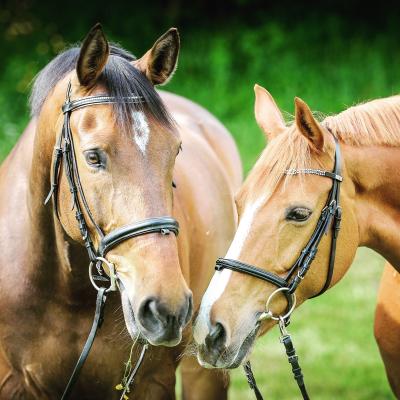
A new aggressive variant of Equine Herpes Virus has broken out in Europe which has resulted in a six week pause in competitions.
There are a number of similarities with our battle against Covid-19 and variants such as the Brazilian strain which has been causing concern recently.
The FEI, the organising body which oversees elite international equestrian competition, has introduced strict testing for horses leaving competition venues in affected areas. Despite this, a number of fatalities have been reported across the continent including in Germany and Belgium.
A number of equine herpes cases have been reported in the UK in the last few weeks, but it is not yet known if they are linked to the European outbreak.

It might be tempting to think this is just a problem overseas, but I would strongly advise horse owners here to take it seriously. Horses are moving around all the time and it is closer than you may think. Biosecurity, like the social distancing we have become familiar with, is essential.
Equine herpes viruses are a family of relatively common diseases that are named by numbers such as EHV 1, 2, 3, 4 and 5 and affect horses all around the world.
EHV1 can cause respiratory disease, and abortion in pregnant mares. The current outbreak in Europe is a mutation of EHV1 which causes a paralytic neurological version of the disease to appear much more commonly than usual. This version is called Equine Herpesvirus Myeloencephalopathy (EHM).
The clinical signs of EHM include loss of co-ordination of the hind and sometimes the front limbs, fever, bladder paralysis and inability to stand.
EHV1 is found in the UK and several outbreaks occur each year. Horses usually become infected as a foal and the virus then becomes latent, meaning the horse becomes a carrier of the disease without showing any clinical signs. EHV is able to reactivate in times when the carrier horses is stressed. Most mature horses seem to develop a degree of immunity to the respiratory form of the disease. However, they can still act as carriers to infect younger horses. Unfortunately, horses don’t seem to develop any significant immunity against the abortion causing or neurological forms.
The decision to vaccinate is difficult and I would advise you to seek advice from your vet. There is a vaccine against EHV1 which provides protection against the respiratory disease and abortion but not against the neurological form of the disease.
Vaccination does reduce transmission, or the R number. Horses which have been recently exposed to EHV should not be vaccinated as there is some evidence that this might increase the risk of developing neurological disease.
EHV is spread in droplets as the horse breathes or from infected material following an abortion.
Good biosecurity is the key to preventing EHV outbreaks. Always isolate new horses coming into a yard for three weeks and monitor temperature daily. Call your vet if a horse in isolation becomes unwell.
Pregnant mares should not be mixed with other groups, especially young stock, avoid travelling or stressing mares in late pregnancy and do not add new pregnant mares to existing groups.
Do not share buckets and equipment at shows, do not allow horses to graze at show venues and do not stand nose to nose with other horses in collecting rings.
Do keep your horse in the box until warm-up time and return to the box straight after competing and cool down. Clean and disinfect your horse box and equipment after each show. Monitor your horse’s temperature daily and be vigilant so early signs can be detected.